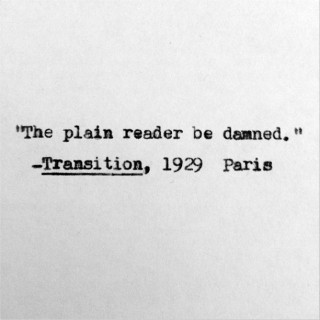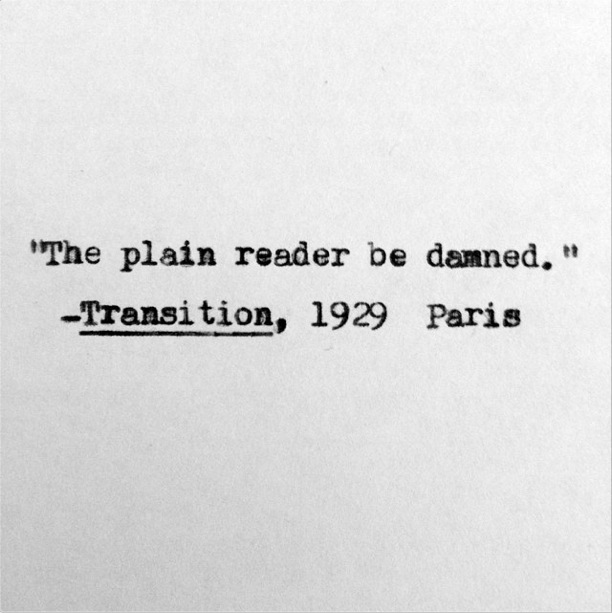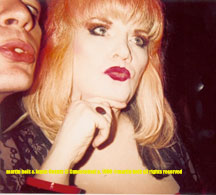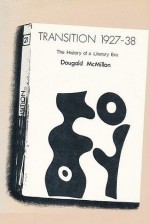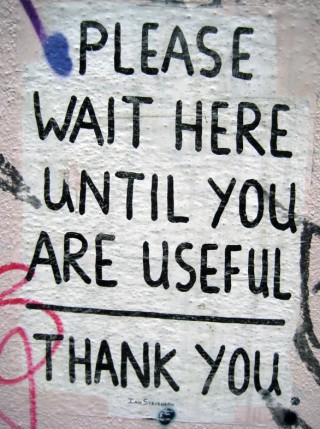-
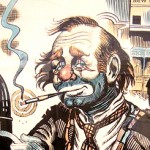 May 5th, Alig’s liberation day. Lately I’ve seen more rah-rah stomach-turning web posts for Michael Alig to start some lame-assed revival party than I care to count. Please, for the love of all things not yet devoured by the corporate culture world, just say: NO.
May 5th, Alig’s liberation day. Lately I’ve seen more rah-rah stomach-turning web posts for Michael Alig to start some lame-assed revival party than I care to count. Please, for the love of all things not yet devoured by the corporate culture world, just say: NO.The Alig murder story is akin to 9/11 for NYC culturists – we all had a connection, we all remember hearing the news, we all saw the various iterations to come like Disco Bloodbath. In the past few weeks Michael Musto sums up more than a few and also has some cautious comments on associated trends. Me? I was sitting at the computer in 1996, working on the Squeezebox! invites when an email popped up that Freeze had been arrested and Angel was confirmed missing – which triggered a memory from months earlier which struck me strange. (more…)
-
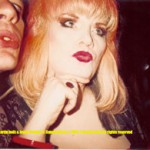
Martin & Jayne @ Squeezebox! c. 1996 In defense of Jayne County and RuPaul, a Punk perspective. • 20 years ago this month a group of us started Squeezebox! which arguably became the latest incarnation of the Max’s Kansas City scene — and arguably one of the last interesting, autochthonous scenes New York City will see for a very long time. The roots actually go back even farther, to the era of the old Tenderloin or the 19th century Bowery. In a communal, collective effort with many voices and artistic angles, we successfully merged the essence of these eras, their performance genres and the existing culture for ten years — when many in the so-called ‘community’ sneered, dismissed and patronized.
-
Transition: The History of a Literary Era, 1927 1938 by Dougald McMillan
My rating: 4 of 5 stars
This is a well-organised, comprehensive survey of the infamous literary journal (more…)
-
OK. So, EV-e-r-yone’s an “artist.” EV-e-r-yone’s “famous.” Hooray. The outcome: sweet fuck-all to watch on TV, 95% of theatre is a mere heroin pill for the masses, two generations of stupid people who can’t look up from their i(diot)phones and the film industry stuck in a time warp on an exploding Christmas tree with tits.
Fame. Huh. What is it good for? Absolutely nothin. The world got Warhol’s quote wrong. I don’t think he meant ‘every single person (individual) would be famous for exactly fifteen minutes.’ Instead, he had a perspective from the top of fame: that, everybody, collectively, will be famous for a period of fifteen minutes. And collectively, they have been. Fame is over. Bieber’s in jail. Winehouse is dead. Madonna is still aging.
I used to produce Squeezebox! (which was, according to Jon Waters, the best club ever, in New York) during one of the most fertile eras of unprecendented creativity that New York City will never see again. What’s the secret? You may ask. How do you nurture a collective of scenes which yield the most productive, robust collection of contributions modern humanity has seen?
Here’s my top five:
1. Participate. You cannot accomplish anything by being a consumer. Money is useless. Buy your outfit in the superstore called your brain. Every single person in a place like Squeezebox!, Jackie 60, CBGB, Danceteria, Mudd Club – (fuck it read my first book for the laundry list) – plays an integral, key role.
2. Forget ‘icons.‘ I’ll never forget how peculiar I felt, and still feel, when I noticed people like Waters, Debbie Harry, RuPaul, Joey Ramone, and many others making room for new people, imperfect people, experimental people. The challenge is to recognize, accept, and do something with it. I’ve never, in 30 years of being involved in real culture, seen anyone worthy of being called ‘icon’ dismiss another person for trying anything creative – as long as it comes from an honest place.
3. It’s not about ‘me.’ This one’s easy. Every single scene, album, theatre production, music show, book, song or party worthy of a warm-air fart is a group effort. Bianca Jagger would never have road to Danceteria on a white horse without Steve Rubell and company. The Sex Pistols would never have wailed-together a punk anthem if they hadn’t seen the Ramones. We’d have never accomplished the first internet show at Squeezebox! without the 8-10 regular producers and a swarm of the partners.
4. Persistence is key. You’ll hear about the ‘legendary’ nights, performances and parties. The internet is splitting at the seams with ‘iconic’ shite. By the time you get to the awards shows, or big arenas, it’s all anticipated and incredibly boring. What’s more worthwhile, are the slow nights. The off-nights. The times when the crowds just don’t show up. That’s when, if you’re absolutely lucky, the hosts, performers, audeinces, participants-all reach deeper, work harder, and bring forth greatness – & that’s where you learn. I’ve seen Mx Justin V Bond go from a five-seater to Carnegie Hall. Hedwig went from our stages to Off-Broadway, and opens on Broadway this March.
5. Don’t Dream It Be It. If Rocky Horror can teach you anything, it is this statement. No matter if you’re in Kentucky or Catalonia: walk like a singer. Talk like a writer. Move like a painter. Fill your own shoes & the world will follow. My friend Varda started her singing career with Bette Midler in the queer saunas of the NYC 1960s, and went on to open for Bob Dylan, and now in her eighties, remains in character in Paris – hosting parties and dinners, and getting around the active art scene – with, character.
And if I were going to include a ‘6’, it would be: Stay home. London, New York, LA, Paris…they’re all, in the words of William Gibson, “cooked”. The world ain’t gonna change if people don’t change it. The world, in the broad sense, that is.
Mark Twain was inspired to write by a river he called home. Georgia O’Keeffe made flowers in a desert, and her Alfred Stieglitz shot the sky. AE Houseman write abotu a lad from Shropshire, and even Rimbaud’s Season in Hell was largely spent on the Belgian border.
Now, go get a copy of Vivian Gornick’s The Situation and the Story, sit down, and stay there, until you can answer the question:
“What have I come to say?”
-mlb, London
